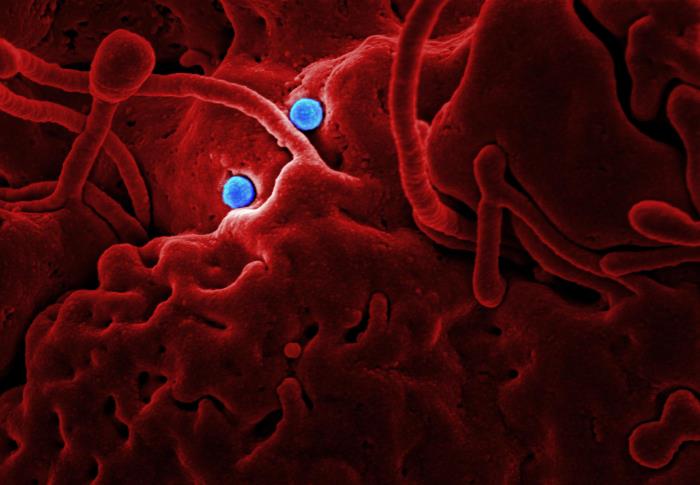Middle Eastern Respiratory Syndrome Corona Virus (MERS-CoV) Testing at the Maryland Department of Health (MDH) Laboratory (2018)
General Background
Middle East Respiratory Syndrome (MERS) is an illness caused by a coronavirus known as Middle East Respiratory Syndrome Coronavirus (MERS-CoV) that first emerged in 2012 and has been linked to travel, or residence in, countries in and near the Arabian Peninsula. However, travel associated cases and outbreaks have occurred globally. Retrospective studies that demonstrated that MERS-CoV has spread from ill people to others through close contact, such as caring for or living with an infected person. Most MERS patients developed severe acute respiratory illness with symptoms of fever, cough, and shortness of breath. About 3 to 4 out of every 10 patients reported with MERS have died. MERS can affect anyone. MERS patients have ranged in age from younger than 1 to 99 years old. For more information see the CDC website at: https://www.cdc.gov/coronavirus/mers/hcp.html.
What testing can the MDH Laboratories Perform
The Maryland Department of Health (MDH) Laboratory has the capability to perform Middle Eastern Respiratory Syndrome Corona Virus (MERS-CoV) testing using a CDC developed real-time PCR assay under an FDA Emergency Use Authorization (EUA). The MDH Laboratory can also run parallel tests for a variety of other more common respiratory pathogens such as influenza A, human metapneumovirus and rhinoviruses that can present similar symptoms in patients who are suspected for MERS-CoV infections.
Fact Sheets:
Fact Sheet for Health Care Professionals: Understanding Results from the CDC Novel Coronavirus 2012 Real-time RT-PCR Assay
Fact Sheet for Patients: Understanding Results from the CDC Novel Coronavirus 2012 Real-time RT-PCR Assay
Fact Sheet for Contacts: Understanding Results from the CDC Novel Coronavirus 2012 Real-time RT-PCR Assay
When can the MDH Laboratories Conduct MERS-CoV Testing
Do not collect and submit specimens for MERS-CoV testing until an infectious disease consultation with the MDH physician-epidemiologist has been conducted and approval has been obtained to provide testing for the case.
What steps to take if you suspect a MERS-CoV Infection
To request MERS-CoV testing for a suspect case of MERS-CoV, contact the MDH Infectious Disease Bureau at 410-767-6700 during business hours, and after hours call the MDH Emergency Call Center at 410-795-7365 to arrange the initial infectious disease consultation.
After the consultation, if MERS-CoV testing is indicated and authorized, the MDH Laboratory will contact you or your institution’s laboratory to make any additional logistical arrangements needed for expedited testing.
Acceptable Specimens
The MDH Laboratories requires that a lower respiratory, upper respiratory, and serum be collected on all suspect patients for MERS-CoV testing. Acceptable specimen types include the following:
- Respiratory Specimens
- Upper respiratory specimens-including nasopharyngeal* and/or oropharyngeal Swabs collected in Viral Transport Media, nasopharyngeal wash/aspirate, and nasal aspirate (*Please note that the Nasopharyngeal swab will be used to run the Biofire Respiratory Disease Panel)
- Lower respiratory tract specimens-including Bronchoalveolar lavage, tracheal aspirate, sputum, and pleural fluid
- Serum
- Stool
Specimen Collection Kit Instructions
For periods of ≤72 hours, specimens should be held at 2-8℃ rather than frozen. For delays exceeding 72 hours, freeze specimens at -70℃ as soon as possible after collection unless otherwise noted. Please be sure to label each specimen with patient name, specimen type, and date and time of collection. Specimen collection kits (Viral Culture Kit) can be ordered by the local health department by calling 443-681-3777 and submitting via email or fax the Outfit Supply Requisition form. (See link below)
Specimen Collection & Storage
Completing the Test Request Form
The MDH Laboratories Administration Form # 4676 Infectious Agents: Culture / Detection must be completed and submitted with each of the required specimens (1) nasopharyngeal swab, (2) serum, and (3) one of the following lower respiratory specimens (sputum, bronchoalveolar lavage, tracheal aspirate, or pleural fluid). Click on the links below for an example of the completed form #4676 and the electronic fillable form.
Packaging and Shipping
Specimens must be packaged in a triple packaging system to ensure that under normal conditions of transport they cannot break, be punctured or leak their contents (Refer to page 10 in the Lab Services Guide for Basic Triple Packaging Guidance).
Contact Information:
To request MERS-CoV testing for a suspect case of MERS-CoV, contact the MDH Infectious Disease Bureau at 410-767-6700 during business hours, and after hours call the MDH Emergency Call Center at 410-795-7365 to arrange the initial infectious disease consultation.
For questions or concerns, please contact the Division of Molecular Biology Laboratory at 443-681-3924 or 443-681-3800 during normal business hours from 8:00AM-4:30PM.

